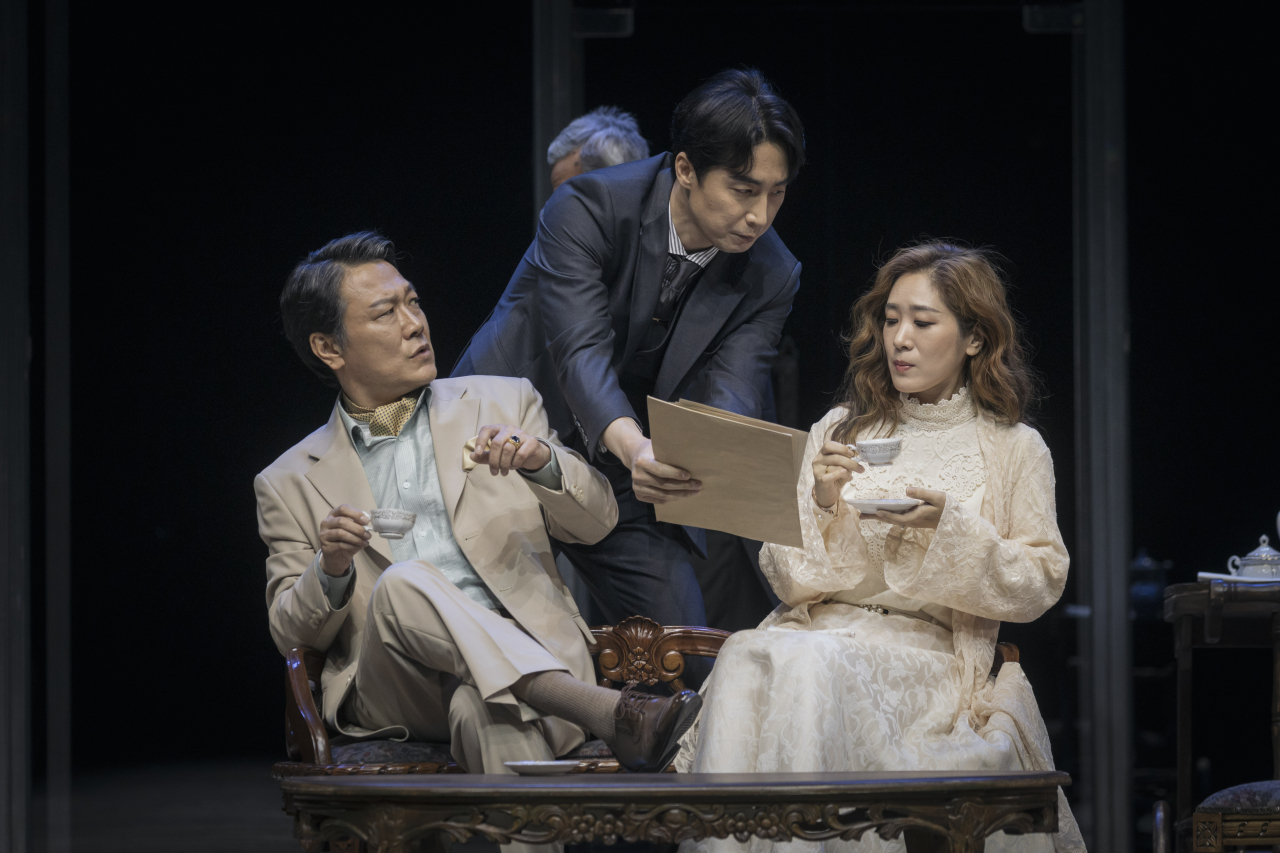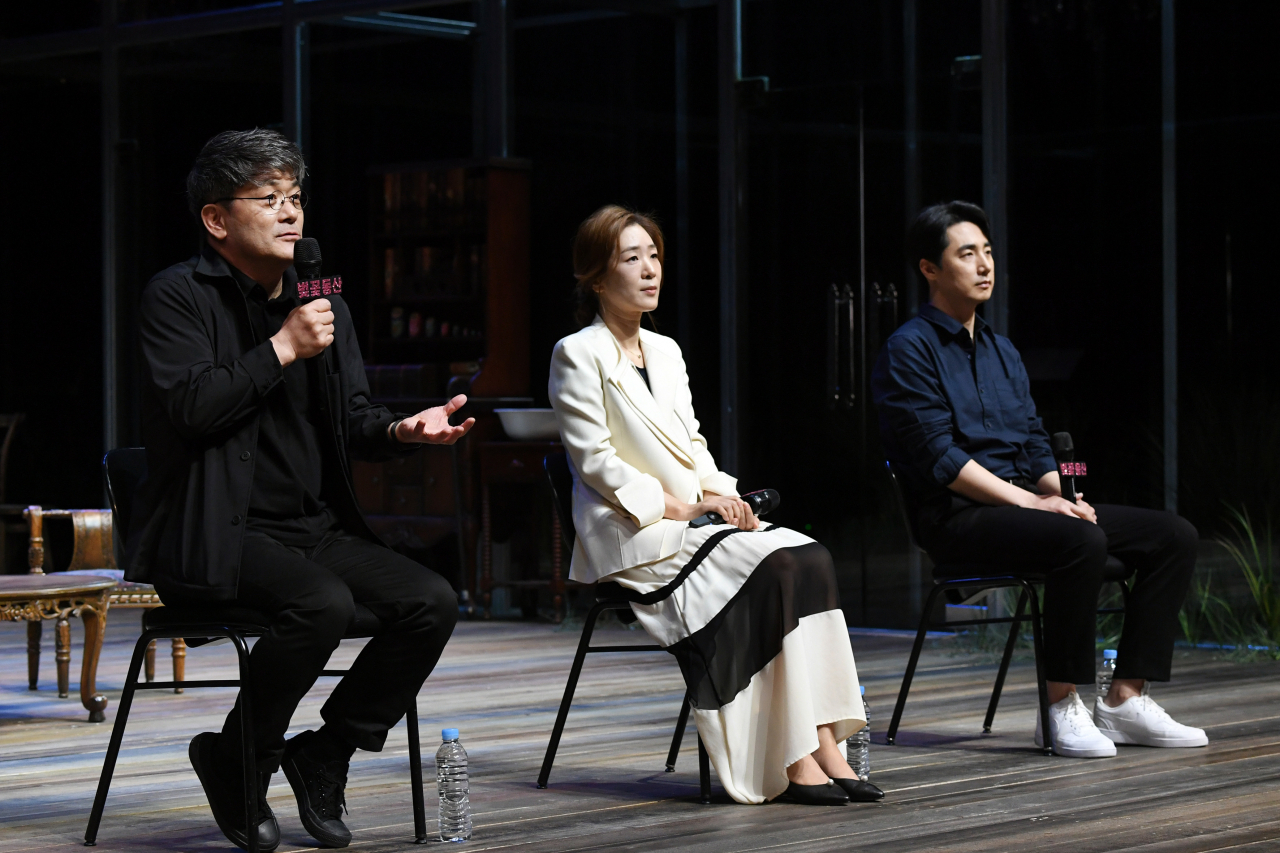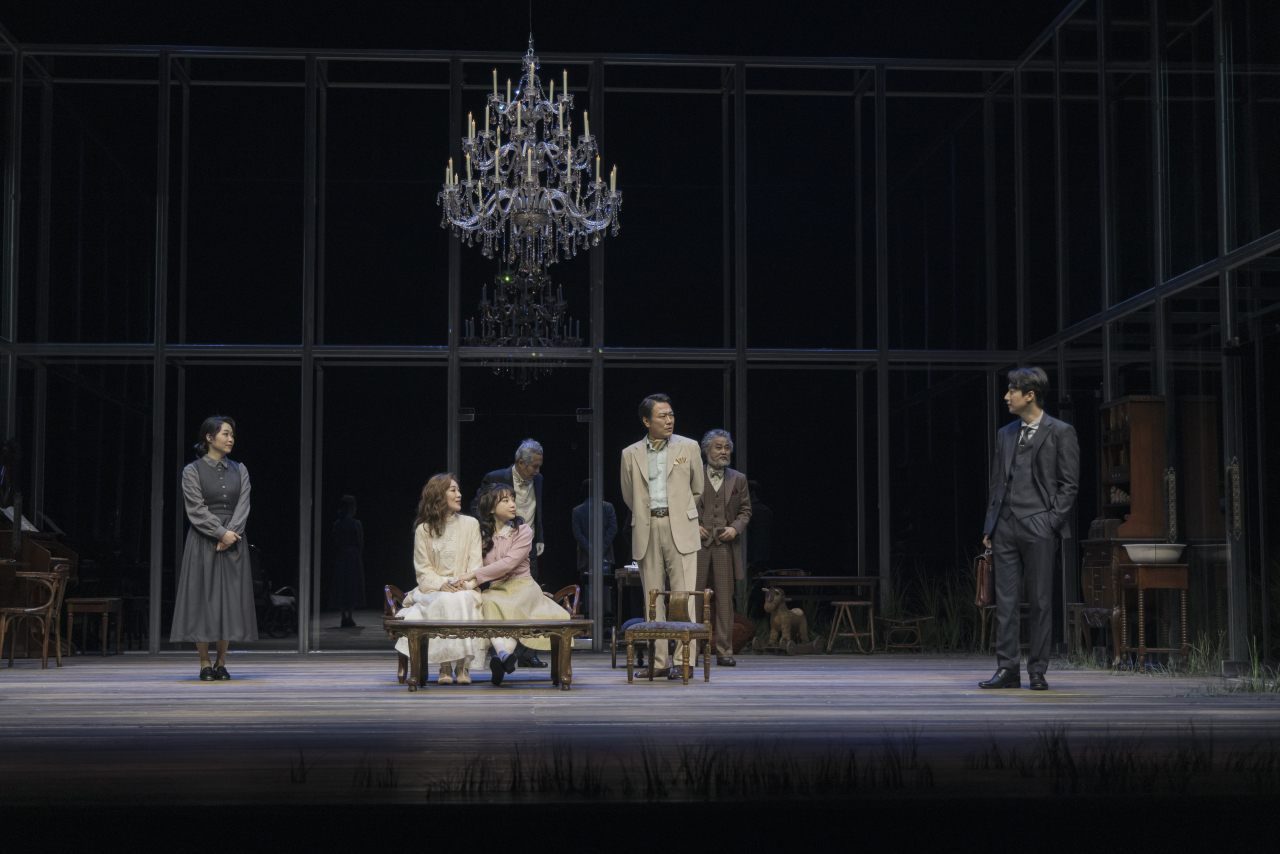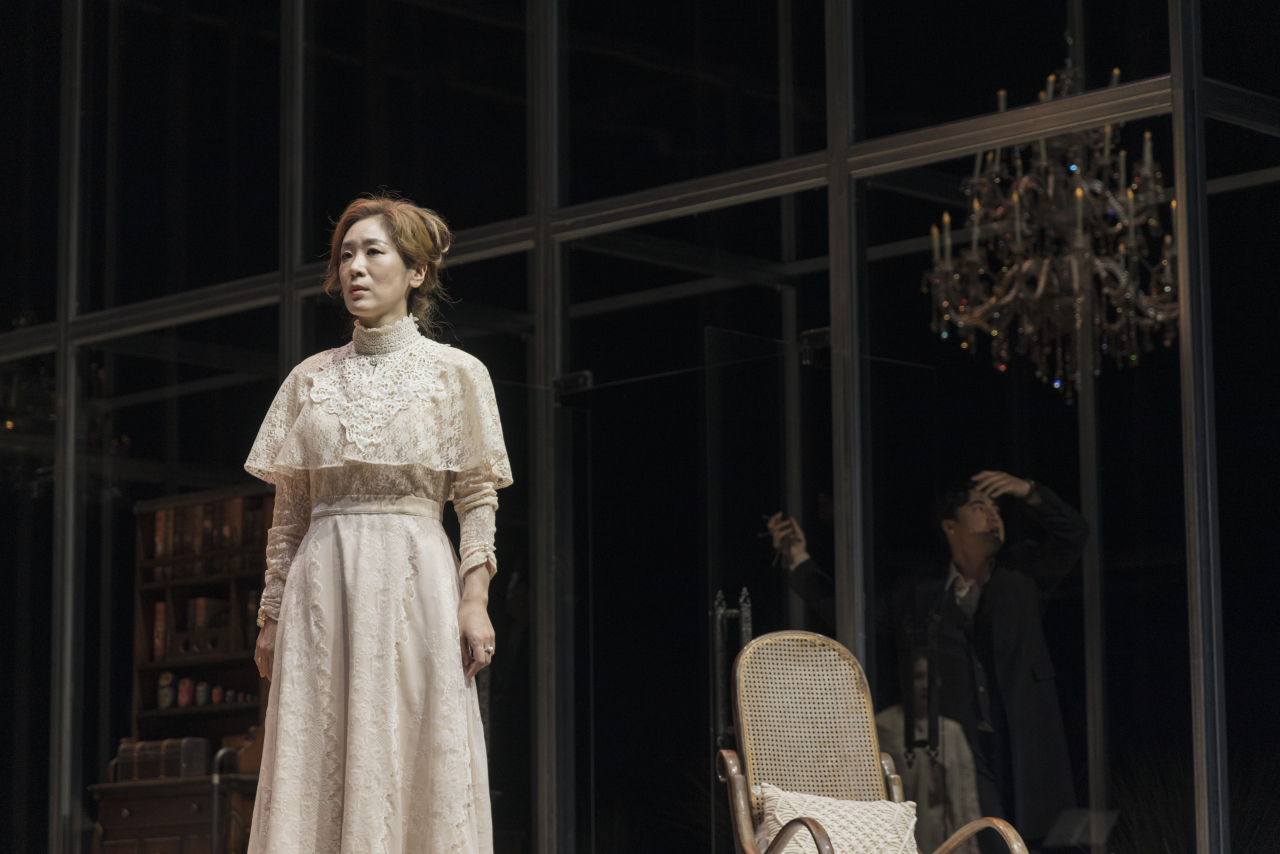 |
A scene from "The Cherry Orchard" (NTCK) |
People cope differently when society rapidly changes: Some ignore the changes and fall behind while others adapt and thrive. Anton Chekhov’s “The Cherry Orchard,” set at the turn of the 20th century, contrasts the fate of the declining aristocracy with that of the rising middle class.
Currently running at the National Theater Company of Korea until May 28, Chekhov’s final full-length play stars actor Baik Ji-won in the lead role under the direction of NTCK artistic director Kim Kwang-bo. Tickets to all performances are sold out.
 |
(From left) Director Kim Kwang-bo and actors Baik Ji-won and Lee Seung-joo speak at the press conference held at the National Theater Company of Korea, Wednesday. (NTCK) |
During a press conference held last Wednesday, Kim admitted that he had not been a fan of Chekhov, but was deeply touched by the last line spoken by old servant Firs: “Life's gone on as if I'd never lived.”
Firs’ final lines in the final scene and the cherry blossom petals fluttering down on Firs’ body -- Kim's imaginative touch -- left a lasting impression. Firs, who cannot leave behind the glorious old days when everybody admired his masters, is left behind at the mansion alone.
There are 13 characters in the play, each with distinct personality that made it easy to distinguish among them despite their Russian names, which were unfamiliar to this reporter.
 |
A scene from "The Cherry Orchard" (NTCK) |
 |
A scene from "The Cherry Orchard" (NTCK) |
Playing the role of Ranevsky, an aristocrat who returns home after six years to find her family on the brink of bankruptcy, Baik’s unwavering acting as the linchpin led the 110-minute play. Known for her role as Han Seon-young, CEO of the Hanbada Law Firm in ENA’s hit series, “Extraordinary Attorney Woo,” this is Baik’s first stage play in five years.
Baik’s portrayal of Ranevsky’s growing anxiety and panic beneath her fragile smile had the audience riveted as they followed her subtle emotional changes.
Kim and Baik said they have interpreted Ranevsky as someone who runs away from a problem instead of finding a solution. While most of “The Cherry Orchard” focuses on Ranevsky’s absurd lack of a sense of reality, Kim highlights her emotional journey, portraying her as someone who tries to ignore and avoid things.
It is said that Chekhov intended the play as a comedy -- and the title page of the work refers to it as such. However, paradoxically, the comedic elements together form a tragic ending for Ranevsky.
The plot is best represented by the stage set, representing the interior of Ranevsky’s mansion with a transparent layer of glass, seemingly foreshadowing the tragic fate of the mansion and the downfall of an era.






![[Today’s K-pop] Blackpink’s Jennie, Lisa invited to Coachella as solo acts](http://res.heraldm.com/phpwas/restmb_idxmake.php?idx=644&simg=/content/image/2024/11/21/20241121050099_0.jpg)
